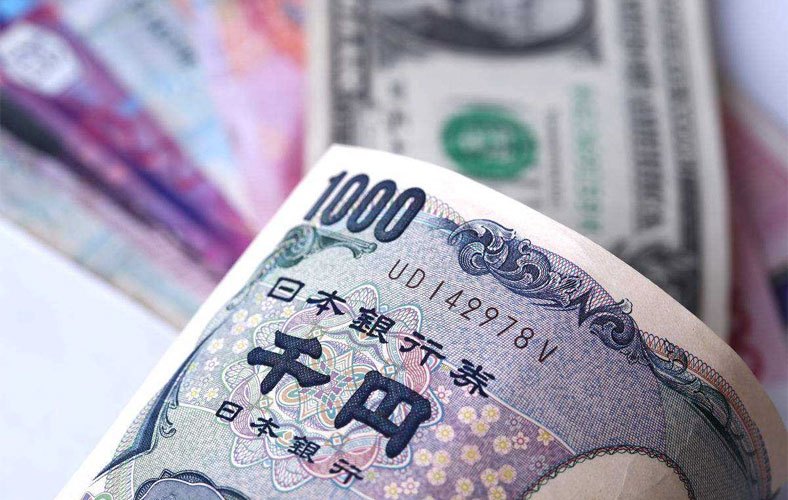Exports are shrinking for the first time in more than two years. Japan's economic growth engine is going out.?
On August 17, Japan's Ministry of Finance reported that exports fell by 0% year-on-year in July..3%, the first decline since February 2021 and slightly above the forecast decline of 0.2%。
On August 17, Japan's Ministry of Finance reported that exports fell by 0% year-on-year in July..3%, the first decline since February 2021 and slightly above the forecast decline of 0.2%。The government believes that the decline in exports is mainly due to a sharp decline in chip manufacturing equipment and parts shipments exceeding the growth in automotive demand.。
Meanwhile, imports fell for the fourth month in a row as commodity prices slowed, down 13.5%, the biggest drop since September 2020。However, the figure is slightly better than the market forecast of a decline of 15.2%。
Japan's trade balance re-emerged after a "brief" 43 billion yen surplus last month, with a deficit of 78.7 billion yen (about 5.$3.8 billion)。Previous market forecast surplus of 47.9 billion yen。
In terms of exports, Japan's exports to its largest trading partner, China, fell 13 percent year-on-year in July..4%, the biggest drop since January。Among them, shipments of automobiles, stainless steel and microchips fell 10% after June..After 9%, there was another double-digit decline in July.。Exports to China have fallen for the eighth month in a row, a trend likely to continue as economic activity cools。
In July, Japan's exports to the United States rose 13.5%, a slightly faster growth rate than last month, the growth was mainly driven by the export of automobiles and auto parts, of which the export of automobiles increased by 34%。In addition, Japan's exports to Europe grew 12.4%。
But it is not yet known whether this demand in the US and Europe will continue.。Because some economic indicators in the United States and Europe have shown signs of slowing, driven by interest rate hikes。
Makoto Ishikawa, a senior fellow at Itochu Research Institute, said: "The automotive industry has been recovering, but this trend will soon end.。Once this happens, Japan's exports to Europe and the United States will weaken。"
By product, exports of fossil fuels fell by 60%, the biggest "drag" in July's export data, and chips and chip manufacturing equipment, shipments fell by 27% in July.。
Makoto Ishikawa said: "The deteriorating semiconductor market has depressed prices and put downward pressure on overall exports.。"
Imports fell in July as commodity prices fell.。Brent crude averaged about $80 a barrel in July, down from about $105 a barrel a year earlier.。The drop suggests that commodity-driven inflation is slowing, which is consistent with the Bank of Japan's view。
In July, the yen averaged 142 against the dollar..32, a year-on-year depreciation of 4.6%。The yen has fallen to its lowest level since November.。
However, the weak yen has spurred strong interest from tourists traveling to Japan。In July, the number of foreign tourists to Japan exceeded 2 million for the second consecutive month, returning to about 78 percent of pre-epidemic levels.。
The impact is likely to be felt in the coming months after China last week lifted restrictions on group tours to Japan.。The Daiwa Institute of Research estimates that inbound spending by Chinese tour groups will increase by about 200 billion yen this year to about 4 billion yen..1 trillion yen ($28.2 billion)。
Weak yen should help boost exporters' profits but also put upward pressure on import costs。
Shuji Tonouchi, senior economist at Mitsubishi UFJ Morgan Stanley, said: "The continued depreciation of the yen will increase the amount of overseas payments.。But in the short term, this is a negative deterioration factor for the trade balance.。"

On August 15, preliminary data released by Japan's Cabinet Office showed that Japan's second-quarter GDP grew by 1.5%, an annual increase of 6%, higher than market expectations。Increased exports are the main reason for Japan's GDP growth in the second quarter.。Data show that Japan's exports in the second quarter rose 3.2%, imports fell 4.3%。The data also provided support for Bank of Japan Governor Kazuo Ueda to maintain ultra-loose policy.。
But July's import and export data cast a shadow over Japan's subsequent economic growth.。
Currently, the Japanese government is counting on exports to support the economy and boost consumption weakness due to inflation, but now exports have turned around and declined, highlighting the fragility of Japan's export engine。
Japan's core orders fell 5 percent in June compared with a year earlier, public data showed.8%。Core Orders is a highly volatile data series seen as an indicator of capital expenditure over the next six to nine months.。And data from Japan's Cabinet Office survey show that core orders will fall 2 in the July-September quarter..6%, coupled with weak exports, indicate rising pressure on the Japanese economy。
Takeshi Minami, chief economist at the Norinchukin Research Institute, said: "The Bank of Japan must be aware of the downside risks to the global economy.。Therefore, given the risk of an external economic slowdown, the Bank of Japan will have no choice but to temporarily avoid any efforts to normalize monetary policy.。He added that Japan's economy could suffer a downturn in the current quarter.。
In its latest outlook report, the Bank of Japan also noted that external demand is likely to be weak in the coming months, saying: "Exports and production are expected to be affected by the slower pace of recovery in overseas economies.。"
Marcel Thieliant, head of Asia Pacific at Capital Economics, said: "The July trade data still suggest that net exports will grow slightly in the third quarter.。But even so, Japan's GDP growth is sure to slow sharply。"
·Original
Disclaimer: The views in this article are from the original Creator and do not represent the views or position of Hawk Insight. The content of the article is for reference, communication and learning only, and does not constitute investment advice. If it involves copyright issues, please contact us for deletion.